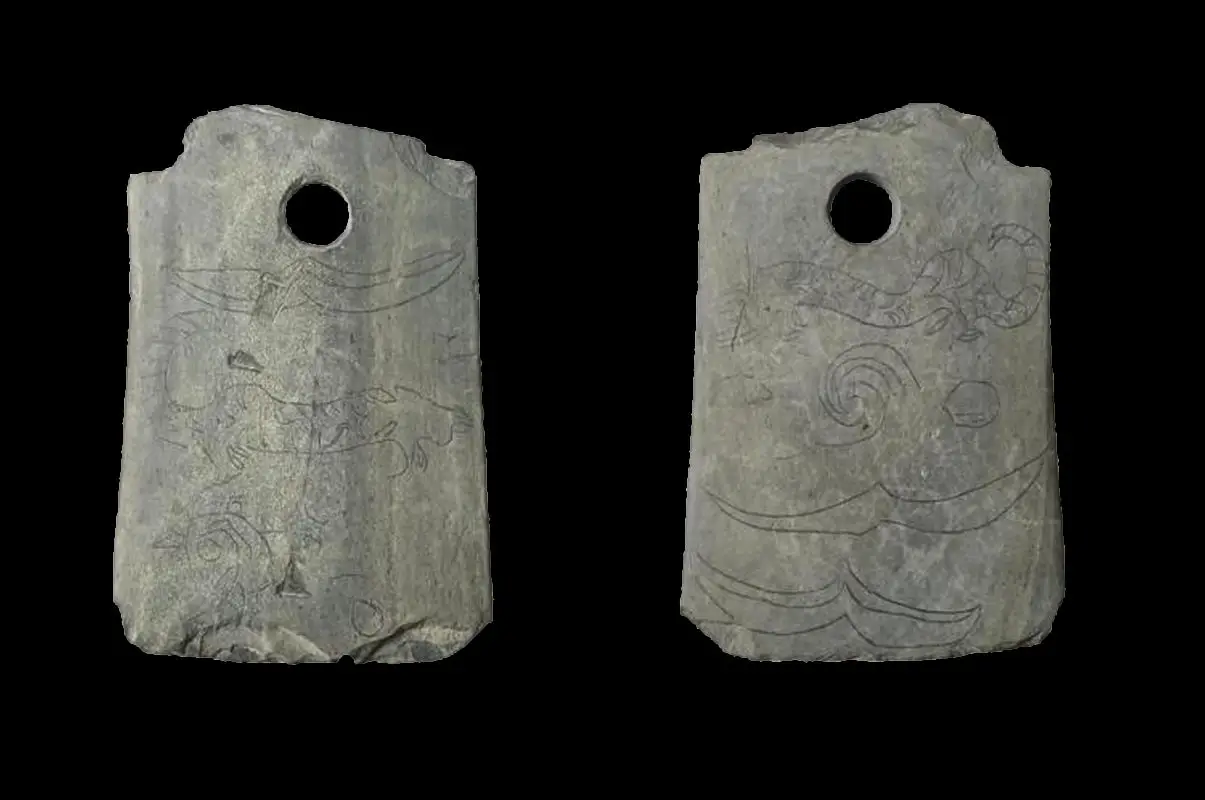Archaeologists have uncovered an engraved 4,500-year-old ritual weapon during excavations in China’s Wuxi City in Jiangsu Province.
The artefact is an axe-shaped ritual weapon from the Liangzhu Culture period, one of China’s most advanced Neolithic cultures emerging around 3,300 BC in the Yangtze River Delta.
The Liangzhu were centred on a pan-regional urban centre (the type-site for the culture) at Liangzhu, which was first discovered in 1936.
Massive flooding and inundation due to poor drainage in the low-lying land may have forced the Liangzhu people to abandon their capital city and dwellings in the Taihu Plain, ultimately leading to the collapse of the entire Liangzhu civilisation around 2,300 BC.
Archaeologists have recently uncovered 329 stone tools at the Dinggeng archaeological site in Wuxi City. The team also found 73 stone and bone arrowheads and numerous ceramic and jade artefacts.
The most notable discovery is a 4,500-year-old stone axe engraved with depictions of tigers on both sides and patterns of clouds and birds.
The axe was found on a sacrificial platform and exhibits evidence of wear and damage, which the researchers suggest was likely used for a ritual purpose during ceremonies to symbolise power, rather than a weapon used for conflict.
Liu Baoshan, head of the Wuxi Institute of Cultural Relics and Archaeology, said that the patterns on the axe were made with a much harder stone tool and is the first example of a tiger-patterned stone axe uncovered in the region.
Header Image Credit : Zhu Guoliang





